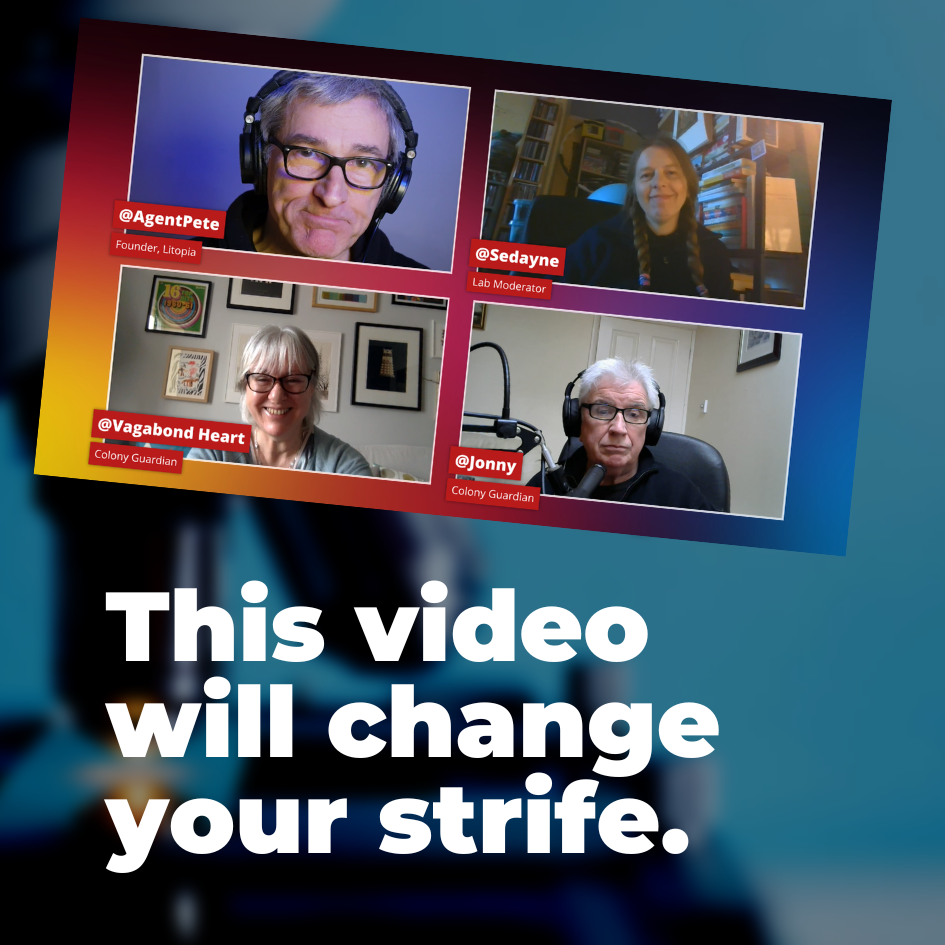This is not written by me, except for the title, but is shared via Jericho Writers.
A discussion of the power of branding.
"I happened to see a clip of Amazon’s Reacher TV series, based on Lee Child’s bestselling thrillers.
And the clip I saw, had Jack Reacher – a giant of a man at 6’ 5” and arms like tree trunks – step off a Greyhound bus in the middle of nowhere. I don’t know what happened next, because I was looking for something else, but boof, right there, you know you’re in Reacher-land. You’re in Lee Child’s universe and nowhere else.
If you’re not a thriller-reader, you may not be aware, but Jack Reacher is an ex-military policeman. He’s big, strong and an astonishing fighter. Those things are run-of-the-mill for this kind of territory, but the element which makes the books stand out is that Reacher has nowhere to live. He travels on buses, sleeps in motels, and carries no luggage. He owns literally nothing. When his clothes get dirty, he discards them and buys fresh. That’s why when a big, handy-looking man steps off a bus without luggage, you know instantly, who it is.
And look: Lee Child’s novels are excellent. They’re thriller masterclasses. The tone is spot on. The invention. The intelligence. The technical knowledge. The prose style won’t win the Booker, but the prose style is dead right for these books.
All the same, very good books often drop out of sight. Lee Child’s didn’t. How much did that owe to the instant recognition factor – the branding element – of Reacher’s mobile lifestyle? Well, I don’t know, but it definitely helped.
Or since we’re talking thrillers, think of James Bond. Fleming’s early work wasn’t all that strong in a way. But he had a British assassin – a state assassin – who was expert in wines and snobbish about clothes. (Or, actually, just snobbish.) Narrow Bond down to a brand, and what you have is instantly recognisable. Here’s a guy whose palate is discriminating enough to care whether a cocktail is shaken or stirred, but he can still beat the living daylights out of an adversary. That’s pretty much the opposite of Reacher, but it’s still excellent branding.
Or forget thrillers. My kids are, at the moment, delighting in the Igguldens’ The Dangerous Book for Boys and its Double Dangerous follow-up.
Here, the branding narrows down to a single word, Dangerous. There isn’t actually anything dangerous about the book. It doesn’t tell you how to tightrope-walk over waterfalls. It doesn’t advise you to set your head on fire. But it’s gleefully keen on the kind of masculine interests and activities that have somewhat lost favour in recent decades: military history, paper planes, carpentry, card tricks, tree houses, party games, constellations, casting techniques. That word dangerous opens up a world of the Good Masculine. It gives it the glitter of something forbidden, exciting, alluring.
It's a quite brilliant word, the best thing about a fine pair of books.
And yet, if the purpose of this email was to talk about One Small Thing – to suggest how a single word can be the difference between bestseller-success and quiet adequacy – I’m not sure I’ve succeeded.
Because although the examples I’ve given do narrow down to something small – a lifestyle, a snobbery, a word – they also open up into something big. Take The Dangerous Book for Boys. That one word inspired a genius bit of cover design – here. The design was retro, nostalgic, but also proclaiming something of a manifesto. “Look, the 1950s might have had plenty of bad male archetypes and things that, as a society, we’re pleased to have moved on from. But what about the good stuff? The men who knew history, and could handle a power saw, and could find true north from the moss on a tree trunk or the tilt of a constellation. This book celebrates all that – we’re retro and proud.”
The contents of the book then followed through. Plenty of what’s in that book is totally inappropriate for kids. Are my children really going to build a tree house? Of course not. But that didn’t matter. The logic of that word dangerous, and that brilliant cover design, all pointed to a book that celebrated a certain kind of old-fashioned manhood and didn’t care too much if it was child-appropriate or not.
There are any number of activities books for kids. Some are good, some are bad, but none of them are going to sell 1.5 million copies in hardback. That word dangerous pointed to and encapsulated a defiant opposition to the normal expectations of an activities book for children, and in that defiance lay its success.
The point here, I guess, is that – if you can – you should try to find the One Small Thing that nudges your book from a perfectly acceptable work to something with extraordinary potential.
That’s the shift from An Activity Book for Kids to The Dangerous Book for Boys.
Sometimes you only need a small shift of perspective to find that thing. Sometimes you’ll never find it (and still produce a perfectly fine and saleable work.) Sometimes, you’ll find an idea that nudges some of your other, earlier ideas aside so forcefully, you’ll end up with something other than the thing you first set out to create.
I’m not great at the One Small Thing. My emails are too long. My books are too long. Even my short stories are too long. That dab of marketing genius is something I find hard myself.
But does it work? You bet it does. Hunt the One Small Thing in your own work – and good luck."
A discussion of the power of branding.
"I happened to see a clip of Amazon’s Reacher TV series, based on Lee Child’s bestselling thrillers.
And the clip I saw, had Jack Reacher – a giant of a man at 6’ 5” and arms like tree trunks – step off a Greyhound bus in the middle of nowhere. I don’t know what happened next, because I was looking for something else, but boof, right there, you know you’re in Reacher-land. You’re in Lee Child’s universe and nowhere else.
If you’re not a thriller-reader, you may not be aware, but Jack Reacher is an ex-military policeman. He’s big, strong and an astonishing fighter. Those things are run-of-the-mill for this kind of territory, but the element which makes the books stand out is that Reacher has nowhere to live. He travels on buses, sleeps in motels, and carries no luggage. He owns literally nothing. When his clothes get dirty, he discards them and buys fresh. That’s why when a big, handy-looking man steps off a bus without luggage, you know instantly, who it is.
And look: Lee Child’s novels are excellent. They’re thriller masterclasses. The tone is spot on. The invention. The intelligence. The technical knowledge. The prose style won’t win the Booker, but the prose style is dead right for these books.
All the same, very good books often drop out of sight. Lee Child’s didn’t. How much did that owe to the instant recognition factor – the branding element – of Reacher’s mobile lifestyle? Well, I don’t know, but it definitely helped.
Or since we’re talking thrillers, think of James Bond. Fleming’s early work wasn’t all that strong in a way. But he had a British assassin – a state assassin – who was expert in wines and snobbish about clothes. (Or, actually, just snobbish.) Narrow Bond down to a brand, and what you have is instantly recognisable. Here’s a guy whose palate is discriminating enough to care whether a cocktail is shaken or stirred, but he can still beat the living daylights out of an adversary. That’s pretty much the opposite of Reacher, but it’s still excellent branding.
Or forget thrillers. My kids are, at the moment, delighting in the Igguldens’ The Dangerous Book for Boys and its Double Dangerous follow-up.
Here, the branding narrows down to a single word, Dangerous. There isn’t actually anything dangerous about the book. It doesn’t tell you how to tightrope-walk over waterfalls. It doesn’t advise you to set your head on fire. But it’s gleefully keen on the kind of masculine interests and activities that have somewhat lost favour in recent decades: military history, paper planes, carpentry, card tricks, tree houses, party games, constellations, casting techniques. That word dangerous opens up a world of the Good Masculine. It gives it the glitter of something forbidden, exciting, alluring.
It's a quite brilliant word, the best thing about a fine pair of books.
And yet, if the purpose of this email was to talk about One Small Thing – to suggest how a single word can be the difference between bestseller-success and quiet adequacy – I’m not sure I’ve succeeded.
Because although the examples I’ve given do narrow down to something small – a lifestyle, a snobbery, a word – they also open up into something big. Take The Dangerous Book for Boys. That one word inspired a genius bit of cover design – here. The design was retro, nostalgic, but also proclaiming something of a manifesto. “Look, the 1950s might have had plenty of bad male archetypes and things that, as a society, we’re pleased to have moved on from. But what about the good stuff? The men who knew history, and could handle a power saw, and could find true north from the moss on a tree trunk or the tilt of a constellation. This book celebrates all that – we’re retro and proud.”
The contents of the book then followed through. Plenty of what’s in that book is totally inappropriate for kids. Are my children really going to build a tree house? Of course not. But that didn’t matter. The logic of that word dangerous, and that brilliant cover design, all pointed to a book that celebrated a certain kind of old-fashioned manhood and didn’t care too much if it was child-appropriate or not.
There are any number of activities books for kids. Some are good, some are bad, but none of them are going to sell 1.5 million copies in hardback. That word dangerous pointed to and encapsulated a defiant opposition to the normal expectations of an activities book for children, and in that defiance lay its success.
The point here, I guess, is that – if you can – you should try to find the One Small Thing that nudges your book from a perfectly acceptable work to something with extraordinary potential.
That’s the shift from An Activity Book for Kids to The Dangerous Book for Boys.
Sometimes you only need a small shift of perspective to find that thing. Sometimes you’ll never find it (and still produce a perfectly fine and saleable work.) Sometimes, you’ll find an idea that nudges some of your other, earlier ideas aside so forcefully, you’ll end up with something other than the thing you first set out to create.
I’m not great at the One Small Thing. My emails are too long. My books are too long. Even my short stories are too long. That dab of marketing genius is something I find hard myself.
But does it work? You bet it does. Hunt the One Small Thing in your own work – and good luck."



